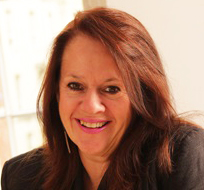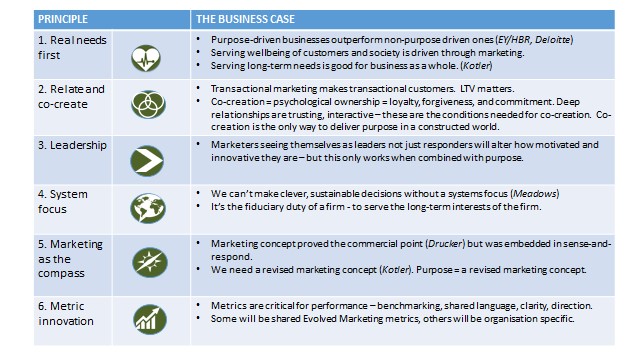 Last November CIM SW sponsored a workshop at Plymouth University entitled Purpose Driven Marketing Management. Attended by more than 30 individuals representing a wide range of sectors, the workshop focused on an exploration of the innovative Evolved Marketing Framework. Carole Bond reports:
Last November CIM SW sponsored a workshop at Plymouth University entitled Purpose Driven Marketing Management. Attended by more than 30 individuals representing a wide range of sectors, the workshop focused on an exploration of the innovative Evolved Marketing Framework. Carole Bond reports:
You just can‘t ignore purpose.
Analysis by Said Business School and EY in 2015 revealed that public discourse about corporate organisational purpose has increased fivefold since 1994 and is now trending at an exponential rate that surpasses the rate of public discourse about sustainability. Purpose can be understood as “ an organisation’s enduring and meaningful reason to exist that aligns financial performance with a societal or environmental goal, provides a clear context that guides daily decision making, and unifies and motivates stakeholders towards achieving it.” (Hurt, Ebert and Prabhu 2017)
Last year the Edelman Trust Barometer showed 80% of consumers think business must play a role in addressing societal issues, whilst research by Nielson indicated that 2 in 3 consumers would pay more for products and services from brands committed to making a positive social impact.
Then there are the millennials, 87% of whom believe the success of a business should be measured by more than just its financial impact (Deloitte, 2016).
Reflecting this trend at the heart of mainstream business, the UK FSA concluded that “a clearly defined purpose which goes beyond profit, and well-chosen values that are translated into a set of expected behaviours embedded throughout the company, are essential for a healthy culture and can motivate and build trust with employees”.
Corporations are responding of course, increasingly seeking to clarify their contribution to long-term global wellbeing beyond maximising profits. A number have made high profile commitments to purpose such as Proctor and Gamble’s Global Marketing Officer, Mark Pritchard’s announcement that his mega-brand corporation had moved from “the selling products business to the business of improving life” and Unilever’s declaration that it has “from its origins, been a purpose-driven company. Today our purpose is simple but clear - to make sustainable living commonplace.” Such companies see purpose as a way to create a thriving organisation that can motivate and inspire stakeholders (customers, staff and collaborators).
Marketing sits at the intersect between a company and everyone else. It defines and maintains relationships. It is also key to shifting or sustaining an organisation’s business model. Marketing is, therefore, core to an organisation understanding its purpose and living it out in a profitable way. Put another way, without marketing that is totally aligned, a company cannot hope to be purpose driven or sustainable.
Evolved Marketing Framework (EMF)
Research led by Dr Victoria Hurth at Plymouth University over the past 4 years and involving multiple partners including the CIM, has resulted in the development of an approach called the Evolved Marketing Framework (EMF), underpinned by 6 key principles (see table). It is a tool to structure the journey to the high-performing, purpose driven company of the future by asking critical questions that drive change in all levels of the organisational system.

Traditional frames of strategic marketing don’t equip companies for maximising the (simultaneous) opportunity and challenge of being purpose driven and sustainable. These frames still operate with the intent of maximising profit in the short-term, and decision making tends to be narrow, linear and short sighted. Even the more market (as opposed to sales) focussed of today’s organisations rarely put real wellbeing of their customers’ or other stakeholders’ at the heart of the firm’s purpose and use this to motivate and align stakeholders. Most organisations still work on the assumptions that a self-serving business will win-out and that all humans are fundamentally self-interested.
The Evolved Marketing Framework (EMF) is designed precisely to address this gap. At its heart the EMF helps implement a company’s purpose and amplify that outwards. The resulting organisational focus is systemic - the decision making broad, integrated and long term (sustainable). It hinges on the understanding that humans are fundamentally motivated to serve others and that although our human needs may be universal, how we meet these (the value we seek) is constructed and therefore has to be co-created. In short, it turns the traditional marketing frames on their head and in doing so puts marketing firmly at the centre of the purpose driven, sustainable organisation.
Further information
The current foundation EMF is being actively progressed and refined through exposure to marketers and businesses. The intention is for it to continue to evolve as it is co-created by marketers and organisations everywhere. If you are interested in finding out more or would like to join in the conversation contact Dr Victoria Hurth or Carole Bond.

